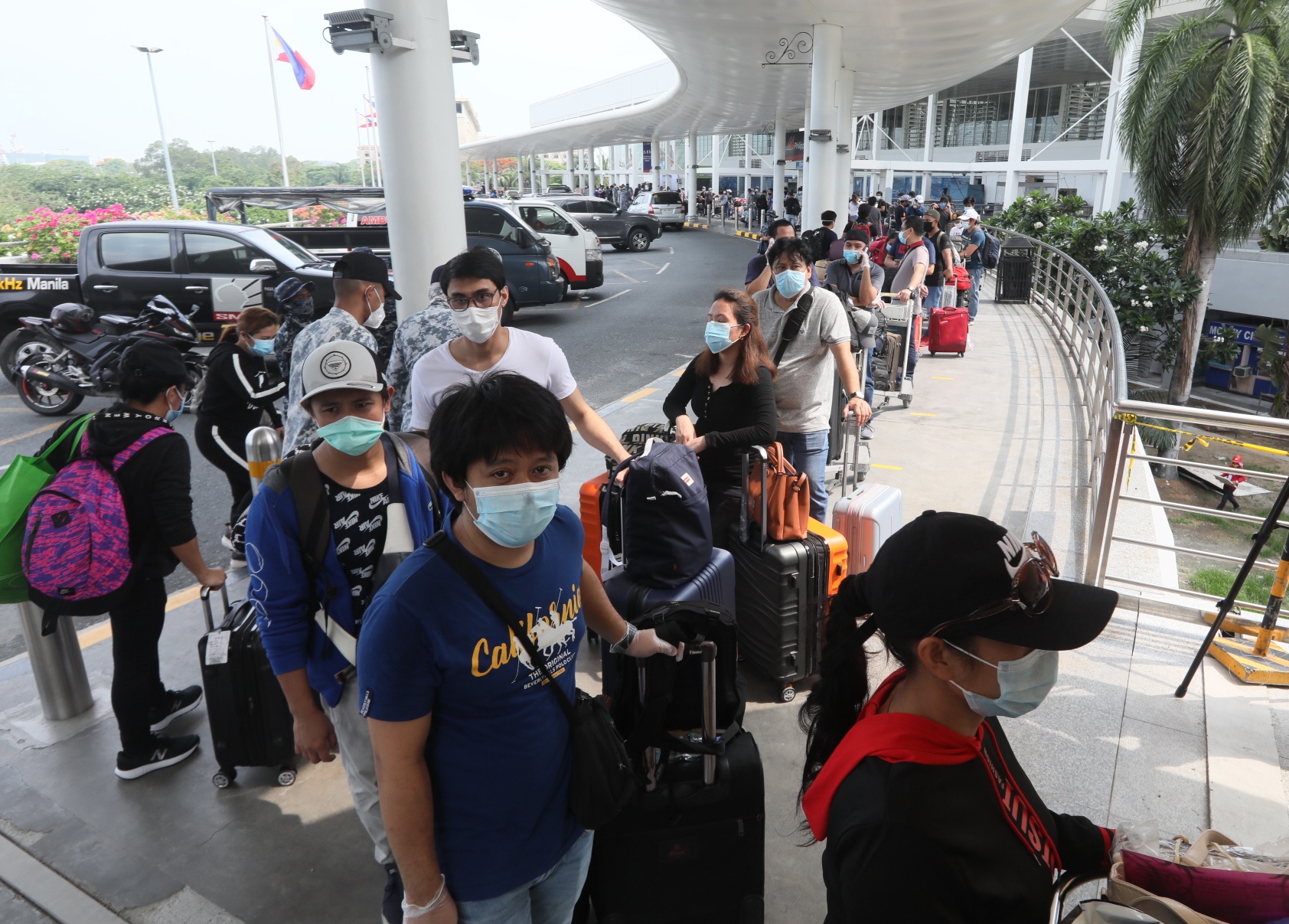News
CBCP hopes Saudi labor reform to include domestic workers

FILE: Overseas Filipino workers (OFWs) heading to their hometowns after completing mandatory quarantine queue at the departure area of Ninoy Aquino International Airport Terminal 2 during a send-off on Tuesday (May 26, 2020) (PNA photo by Avito C. Dalan)
MANILA – The Catholic Bishops’ Conference of the Philippines (CBCP) on Tuesday said it hopes that household service workers (HSWs) would be included as among those covered by Saudi Arabia’s labor reform initiative towards abolishing the “kafala” system.
Bishop Ruperto Santos, vice chair of the CBCP-Episcopal Commission on Migrants and Itinerant People (CBCP-ECMI), the move will ensure the protection of Filipino domestic workers.
“We, at CBCP-ECMI, pray and hope that our domestic workers would be included with the easing of kafala. Once they will be covered, it will be a welcome relief and valuable protection for our domestic workers,” he said in an interview.
Kafala originated from the Arabic word which means “sponsorship”.
The system is a mechanism in Middle East countries used to monitor migrant workers, usually unskilled workers such as household service workers and construction workers through a sponsor.
Sponsors are usually the employer, who is responsible for the immigration status and visa of the migrant worker.
“Kafala makes them open and prone to maltreatment and exploitation. With kafala, they are unwillingly tied up to their employers as if ‘owned’ by them,” the Bataan bishop said. “Their movements are curtailed, and cannot leave the country. So we encourage our government officials to appeal that our domestic workers should be included with easing of Kafala.”
Earlier, the International Labor Affairs Bureau (ILAB) of the Department of Labor and Employment (DOLE) reported that HSWs and other workers who are not employed by companies are not covered by Riyadh’s move to abolish the system by March next year.
But, according to ILAB Director Alice Visperas, the Philippine Overseas Labor Office (POLO) in the host country is ready to raise the issue with the Saudi government.
HSWs comprise 17 percent of the more than 800,000 Filipino workers in the kingdom.
Currently, only skilled workers are covered by the labor reform initiative.





















